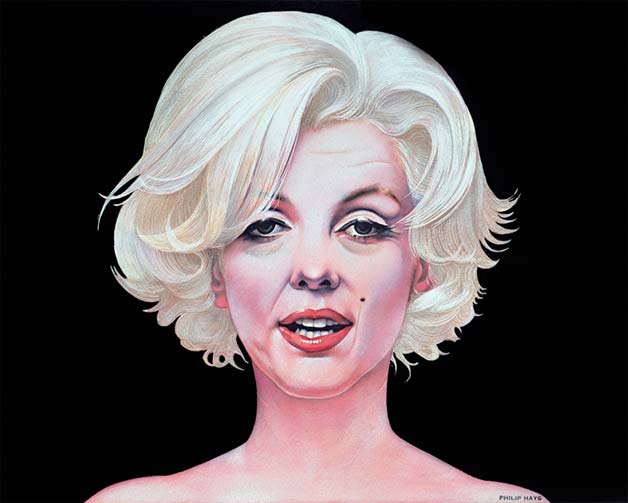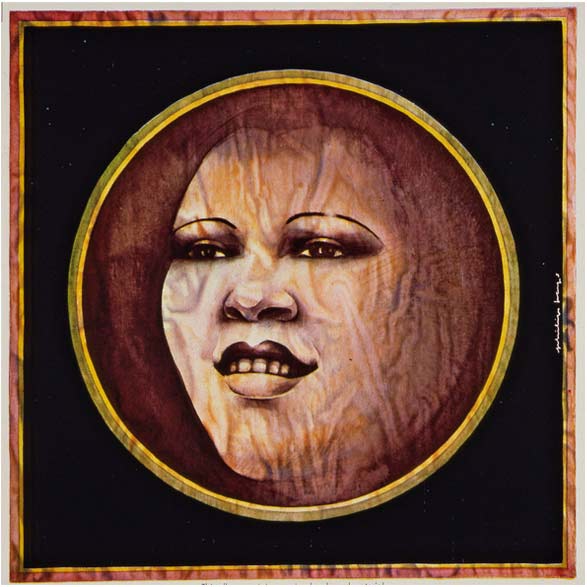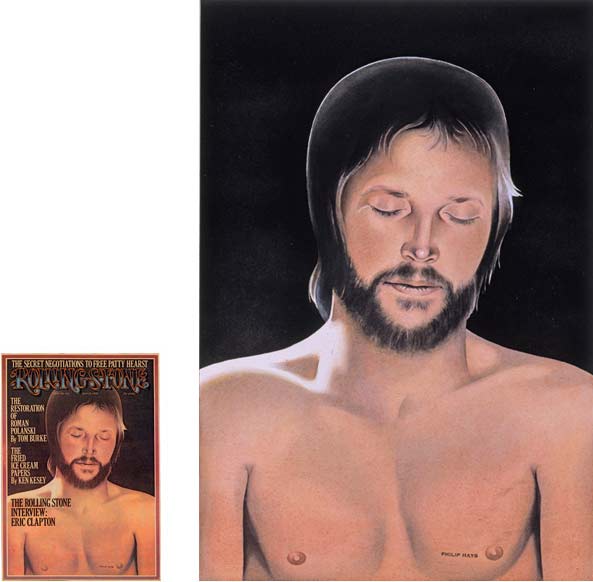Best known for his striking celebrity portraits, Phil Hays was also a committed educator who made a huge impact on the world of American illustration. In the first of our Illustration Heroes pieces, Alex Gross celebrates a rare and much missed talent.


Phil Hays’ importance in the world of illustration is twofold. As an illustrator himself, he created seminal works of enduring power and beauty. As the chairman of the illustration department for nearly a quarter century at Art Center College of Design in Pasadena, California, Phil taught thousands of young illustrators and artists how to make meaningful and rich work. The field of illustration today is populated with hundreds of illustrators who learned their craft from Phil or one of his protégés.
Phil’s career as an illustrator lasted for about twenty five years, from the mid 1950s to the early 1980s, during which time he worked for Esquire, Playboy, New West, Rolling Stone, Scientific American, and countless other magazines. He also illustrated several iconic record album covers for Billie Holiday, Bessie Smith, Muddy Waters, Jerry Lee Lewis, and Ian Hunter, among others.
His illustrations, in particular the portrait pieces, for which he became known, are deceptively sophisticated. On the surface, most of them appear to be simple, marvelously rendered likenesses of the artists portrayed, with no complex narrative. But in fact, Phil’s portraits penetrate the character of the subject, venturing into a deep, often dark psychological place. He described it as a “Pieta,” and explained that the image was of a recently deceased Jones, much as Christ is portrayed after his descent from the cross Before he died, Phil talked with me about his 1978 portrait of Jim Jones, for the cover of New West magazine. It was a personal favorite of his, and one of very few works that he ever displayed in his own home. He described it as a “Pieta,” and explained that the image was of a recently deceased Jones, much as Christ is portrayed after his descent from the cross.
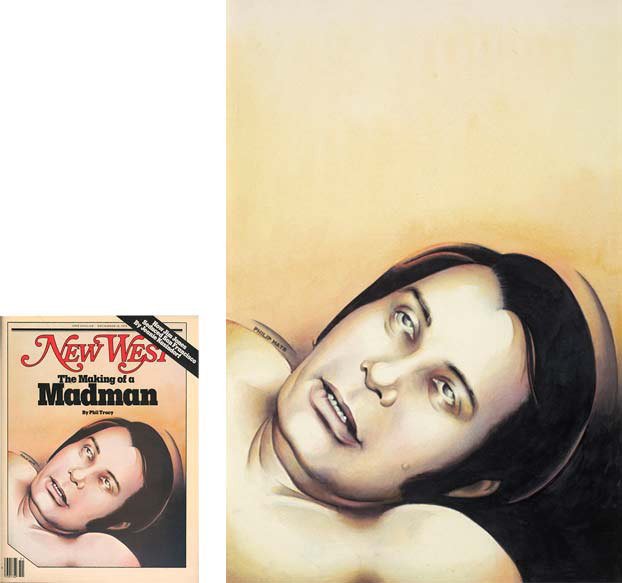
Phil was certain that this piece would be rejected by the magazine, as the image of a dead man would surely be too controversial for them to use as their cover. To his surprise, the call never came, and the piece was used with no alterations. Phil claimed that this issue of New West was one of their highest selling issues.
We see the last wash of color drain from his cheeks as he chases death. This image transcends storytelling by creating a matrix of psychological, religious, and social turmoil within a graphic form Artist Doug Aitken, the renowned video and multimedia artist, and former student of Phil’s, said this about Phil’s portrait of Jim Jones: “As we scan the portrait for clues, we lock onto Jones’ eyes where his murky gaze appears to hold onto a final encrypted secret. He appears sedated and delusional…We see the last wash of color drain from his cheeks as he chases death. This image transcends storytelling by creating a matrix of psychological, religious, and social turmoil within a graphic form.” One of Phil Hays’ talents may have been portraying the darkness and secrets behind troubled souls, but that was by no means the extent of his work. He was equally capable of presenting a wide range of characters and emotions. His dual portraits of Muddy Waters for his 1978 album I’m Ready, show two complex sides to the man. The front cover presents a more serious Waters, slightly grinning, but with an edge to his expression that implies a bit of world weariness, befitting the legendary blues guitarist.

The rear cover features Waters in full smile, head slightly downward, as if trying to contain himself from breaking into a fit of laughter. In both images he stares directly into our eyes. They are dual portraits of a man fully comfortable with himself and his place in the world.
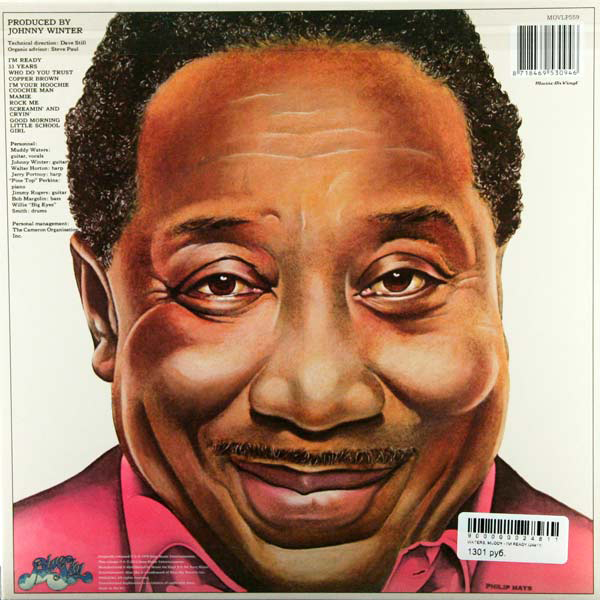
Phil’s paintings of Ian Hunter, Jerry Lee Lewis and John Wayne all represent iconic and strong figures at the height of their powers. His images of Marilyn Monroe (portrayed at 50 years of age), Billie Holiday, Marvin Gaye, and Eric Clapton show something darker, and with great precision. All are marvellous and significant works, and when taken as a whole, they show the true genius of Phil Hays, and why he should be considered high on the list of important figures in the world of illustration over the last sixty years.
